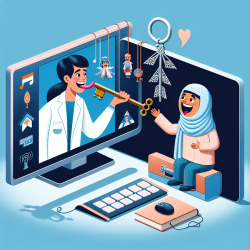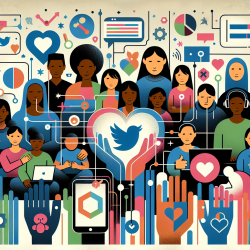Introduction
In the field of speech-language pathology, practitioners are continually seeking ways to improve their skills and outcomes for children. One way to achieve this is by integrating insights from research into practice. A notable study, "Health consequences of the 11 September 2001 attacks" by Landrigan et al., provides valuable data that can inform therapeutic approaches, particularly in online therapy settings such as those provided by TinyEYE.
Understanding the Impact of Trauma on Child Development
The research highlights the profound health impacts experienced by individuals exposed to the traumatic events of 9/11, including psychological and developmental challenges. For children, exposure to such trauma can significantly affect their communication and cognitive development. As practitioners, understanding these impacts is crucial for tailoring therapeutic interventions that address the unique needs of each child.
Data-Driven Approaches in Online Therapy
By leveraging data from studies like this, online therapy providers can enhance their services in several ways:
- Personalized Therapy Plans: Use data to identify specific areas where a child may need additional support, such as anxiety management or social communication skills.
- Monitoring Progress: Implement data-driven tools to track a child's progress over time, allowing for adjustments to therapy plans as needed.
- Evidence-Based Techniques: Incorporate proven strategies that address trauma-related communication issues, ensuring that therapy is both effective and efficient.
Encouraging Further Research
While existing research provides a solid foundation, ongoing studies are essential to keep pace with evolving challenges and therapeutic methods. Practitioners are encouraged to engage with current research, contribute to studies, and apply new findings to their practice. This continuous learning cycle not only benefits individual practitioners but also enhances the overall quality of care provided to children.
Conclusion
Integrating research insights into online therapy can significantly improve outcomes for children. By understanding the health consequences of traumatic events and utilizing data-driven approaches, practitioners can create more effective and personalized therapy experiences. For those interested in delving deeper into the research, I recommend reading the original paper: Health consequences of the 11 September 2001 attacks.










